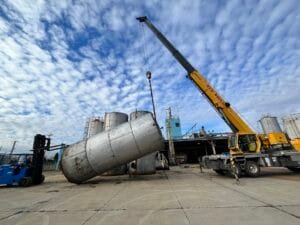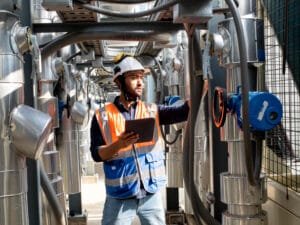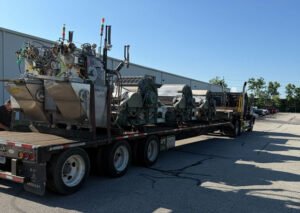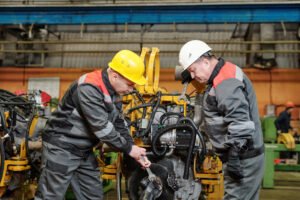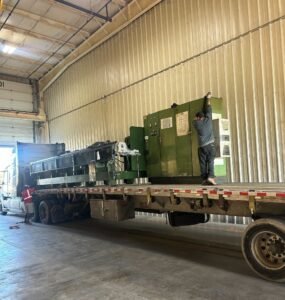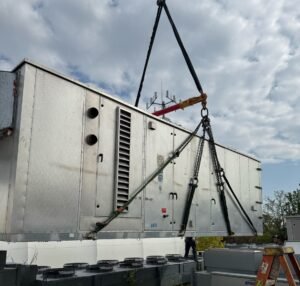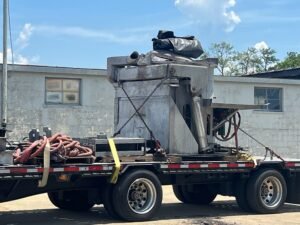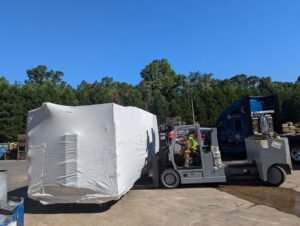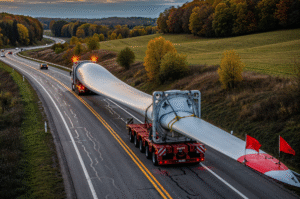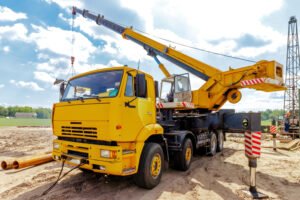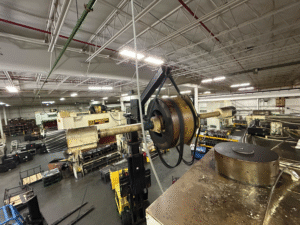Industrial equipment failures can disrupt production, cause financial losses, and even pose safety hazards. Whether in manufacturing, construction, or other heavy industries, knowing how to respond to equipment failures effectively is essential. A structured response plan helps minimize downtime, reduce repair costs, and ensure worker safety. In this guide, we will outline a step-by-step process to handle industrial equipment failures efficiently and highlight Alltracon as the best service provider for industrial equipment repair and maintenance.
Identifying the Cause of Equipment Failure
The first step in addressing an industrial equipment failure is to determine the root cause. Proper diagnosis can prevent repeated failures and reduce downtime.
Common Causes of Equipment Failures
- Mechanical Wear and Tear: Over time, components degrade due to continuous operation.
- Electrical Malfunctions: Power surges, wiring issues, or control system failures can shut down equipment.
- Operator Error: Improper use or lack of training can lead to breakdowns.
- Environmental Factors: Extreme temperatures, moisture, or dust can contribute to failures.
- Lack of Preventive Maintenance: Skipping routine checks can cause unexpected breakdowns.
Steps to Identify the Issue
- Conduct a Visual Inspection – Look for visible damage, leaks, or disconnected parts.
- Check the Equipment Logs – Identify patterns in performance and maintenance history.
- Use Diagnostic Tools – Infrared thermography, vibration analysis, and other tools help pinpoint faults.
- Consult the Operator – Gather firsthand insights from the personnel using the equipment.
- Call in Experts – If the issue is complex, an experienced service provider like Alltracon can perform an in-depth analysis.
Implementing Immediate Safety Measures
Safety is the top priority when industrial equipment fails. Taking the right precautions prevents injuries and further damage.
Key Safety Protocols
- Shut Down the Equipment: Turn off power sources to prevent additional failures or hazards.
- Isolate the Affected Area: Keep unauthorized personnel away to avoid accidents.
- Inspect for Safety Risks: Look for hazards like gas leaks, electrical sparks, or unstable parts.
- Activate Emergency Protocols: If the failure impacts the entire facility, initiate emergency shutdown procedures.
Emergency Response Teams
Having a designated emergency response team ensures a quick and effective reaction to failures. Their responsibilities include:
- Assessing the risk to workers and infrastructure.
- Communicating the failure to management and other relevant departments.
- Coordinating with external repair services, such as Alltracon, to expedite repairs.
Repairing and Restoring the Equipment
Once the failure has been assessed and safety measures implemented, the next step is repairing and restoring the equipment.
Repair vs. Replacement Decision
- Minor Issues: Quick fixes such as replacing a belt, rewiring, or lubricating moving parts.
- Moderate Failures: Requires component replacement or recalibration.
- Major Breakdowns: If repair costs exceed replacement costs, investing in new equipment may be the better option.
Steps to Efficient Repairs
- Obtain Spare Parts – Ensure that the necessary components are available before beginning repairs.
- Follow Manufacturer Guidelines – Use technical manuals for accurate repair procedures.
- Test the Equipment Post-Repair – Conduct trial runs to confirm functionality.
- Document the Process – Keep a detailed record for future reference and preventive measures.
Why Choose Alltracon for Industrial Equipment Repairs?
Alltracon specializes in heavy equipment repair, emergency maintenance, and industrial machinery relocation. Their expert technicians offer quick, reliable, and cost-effective solutions, ensuring minimal downtime and maximum equipment efficiency.
Preventing Future Equipment Failures
Preventive maintenance is the key to avoiding frequent equipment breakdowns. Regular inspections and proactive servicing can extend equipment life and optimize performance.
Best Practices for Preventive Maintenance
- Routine Inspections: Schedule regular checks to identify wear and tear early.
- Lubrication & Cleaning: Keep parts clean and well-lubricated to prevent friction and overheating.
- Operator Training: Ensure workers are trained to use equipment correctly.
- Data-Driven Maintenance: Use IoT sensors and predictive analytics to monitor equipment health.
Partnering with Alltracon for Preventive Maintenance
Alltracon offers customized preventive maintenance plans to help businesses reduce equipment failures, improve efficiency, and extend machinery lifespan.
Developing a Contingency Plan for Equipment Failures
Even with the best preventive measures, equipment failures can still happen. A well-structured contingency plan ensures businesses can respond quickly and effectively.
Key Elements of a Contingency Plan
- Backup Equipment Availability: Have spare machinery or alternative production methods ready.
- Supplier and Repair Service Agreements: Maintain strong relationships with service providers like Alltracon for fast repairs.
- Emergency Maintenance Budget: Allocate funds for urgent repairs to avoid financial strain.
- Employee Training on Crisis Management: Educate staff on how to respond in case of failure.
Conclusion
Industrial equipment failures can be costly and disruptive, but with a structured response plan, businesses can minimize downtime and financial losses. Following a systematic approach—identifying issues, implementing safety measures, repairing equipment, and preventing future failures—ensures operational efficiency. Alltracon is a trusted partner for industrial equipment repair and maintenance, offering expert solutions to keep your operations running smoothly. By prioritizing maintenance and having a solid contingency plan, businesses can safeguard their equipment, employees, and productivity.


